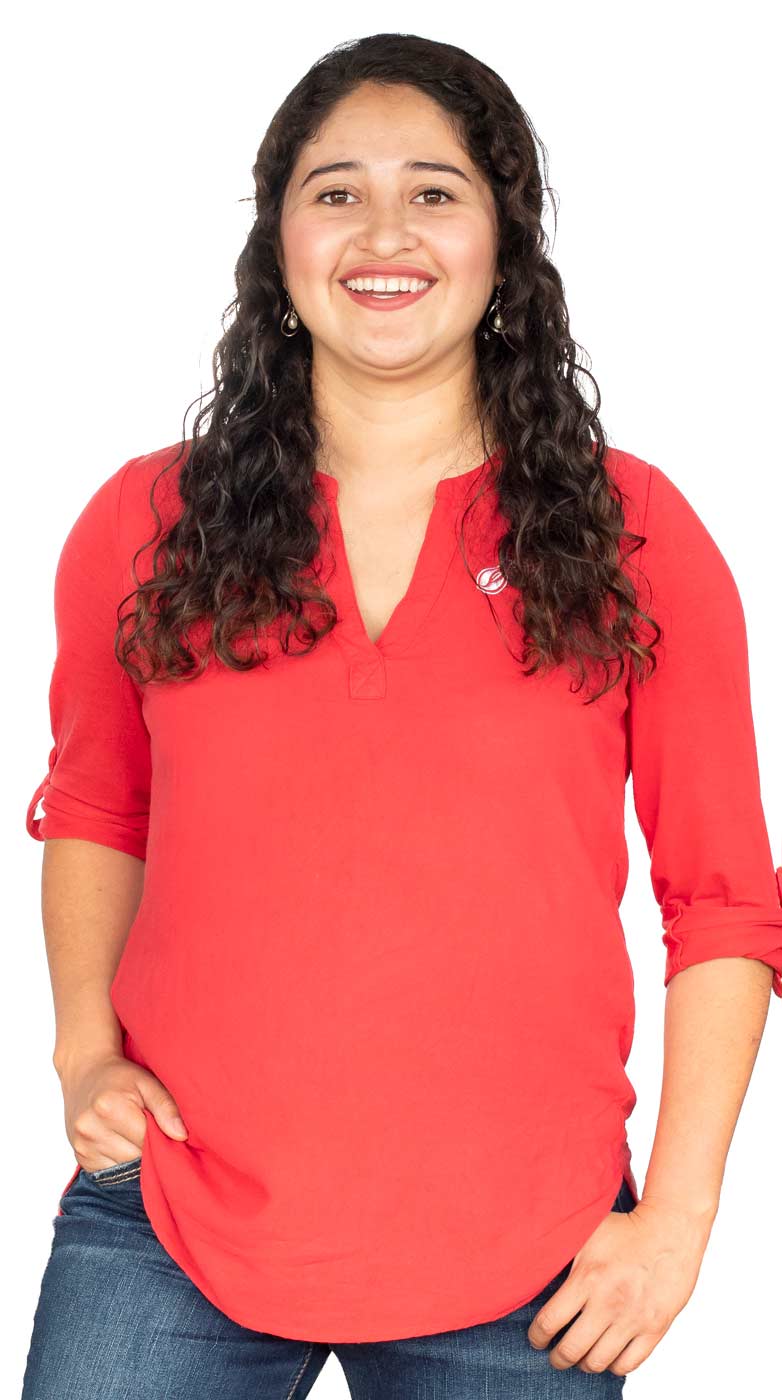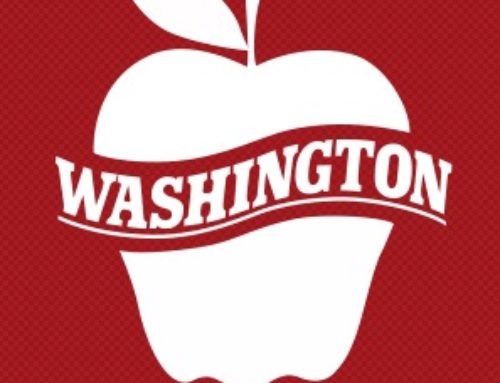family background / Flor grew up on farms, since she was a small child, helping her family establish their own ranch in North Central Washington. She is currently working as a farm special operations manager in and around the Naches and Yakima valleys. She is the daughter of Aristeo and Evelia Maldonado.
age / 25
crops / Apples, pears, cherries
business / Kershaw Companies
How did you get your start?

One of my first things I did on the farm was working with irrigation with my mom. I loved riding on the four-wheeler during the summertime. It was the equivalent of running through sprinklers for me.
My earliest memories were of me out cleaning sprinklers with a little paperclip, clearing the nozzles. I also had a loupe to scout for insects too, although I only knew what an aphid or ladybug looked like at that time, but I thought it was cool.
What was it like growing up on the farm?
I come from a family of 10 siblings – seven brothers and two sisters. In the 1990s, my parents purchased a small farm in Tonasket, and working that farm is how we fed the family.
Every single one of us had to go out and work on the farm each day. It was fun for some of us and others, not so much. They just didn’t like being outdoors.
What influences led you to agriculture as a career?
As the years progressed, us kids became supervisors during cherry, apple and pear harvests. We were making sure pickers weren’t bruising fruit or damaging the trees with their ladders.
Some workers wouldn’t care about next year’s production, because they were focused on picking as much as they could today — it’s piece-rate work. For me as a kid, one of the difficulties as a supervisor was not being so shy.
I found it hard to come up to a 30-year-old guy and let them know, “Hey, stop doing that, you’re damaging the fruit for next year.”
They’d look at me and laugh a little with an attitude of, “Who’s this kid?” What I didn’t know is that dad would be watching on those first days of harvest, when no one would know who I was, ready to come over to back me up.
He’d say, “That’s my daughter and she’s right. You need to be careful.” That’s one area where I learned supervisory skills, and another was through the Future Farmers of America club.
What were your educational experiences in ag?
When I started participating with the local FFA chapter, the advisor asked me to join the apple judging team.
So, I go and compete and our team did really well qualifying for state. I learned many of the things this club did was fun and there’s so many other types of jobs in ag besides farming.
My senior year of high school I changed my mind about pursuing something else in college, like medicine, to going to Washington State University for agriculture economics.
I loved the science classes and labs, but eventually fell out of love with the economics classes. With help from my advisors and my parents’ plan to begin switching to organic methods, I decided to switch to organic ag as my major. I took a huge bet that organic market was going to keep growing.
Did you pursue any internships?
One of my WSU advisors encouraged me to take an internship instead of going home every summer to work on the family farm, which my dad didn’t appreciate all that much.
I called my brother who worked at Kershaw and he helped me get an internship with Domex Superfresh Growers, as a sales assistant.
That opened my mind to a whole new world. I remember that if I was into the office at 6:20 then you’d be late because it’s like stock market management with prices fluctuating and crop reports coming in from different growers.
What are you excited about for the future?
I’m excited about automation technologies. I’ve been out with one harvester machine that’s essentially a robot picking the fruit. I see our labor supply continuing to diminish, even with H-2A.
So, I’m hoping that recent prototypes that are being tested will work out. I’m also looking forward to seeing and taste-testing all the new varieties coming out. It’s fun.
One thing about it, though, is that many of the club varieties seem a bit similar. I want to find one that has a different texture or sweetness or something that’s just amazing.
What would you tell younger growers?
If you want to go into ag, go to college, study hard because there are so many jobs available in this industry. If you go to a horticulture show or training, pick up business cards and have your resume because there’s people that are constantly looking for young growers who’ll be capable of taking over their farms.






Leave A Comment